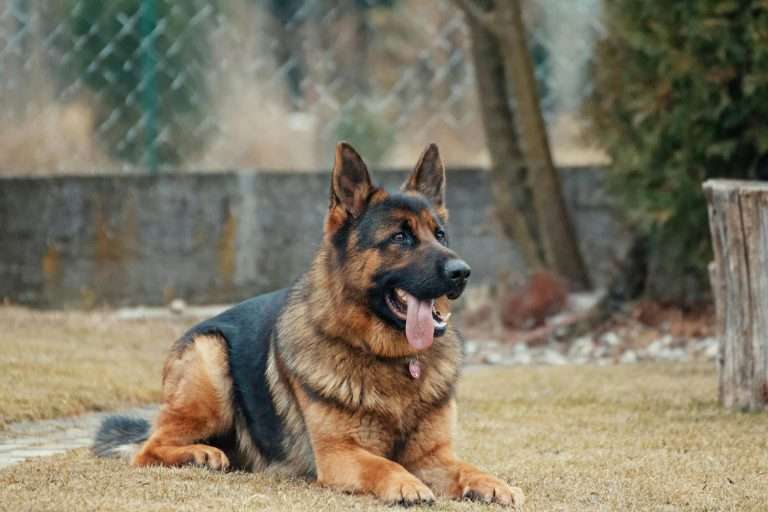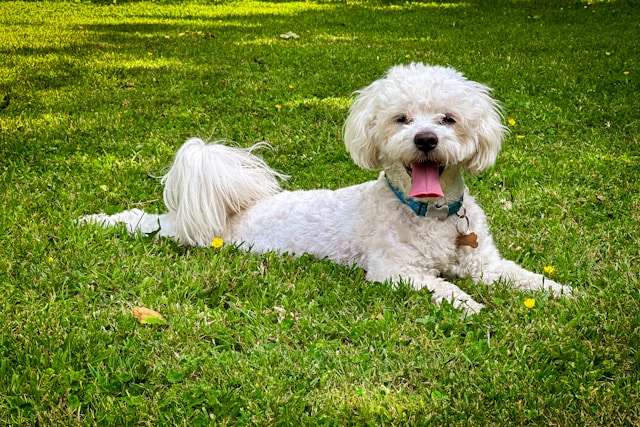Are Bull Terriers Good Dogs? Understanding Their Temperament and Care Needs

Are Bull Terriers Good Dogs? Bull Terriers are often seen as tough and independent, but these dogs possess much more than meets the eye. They are affectionate and loyal companions that make great family pets. Beneath their strong exterior lies a playful nature that endears them to adults and children alike.
Their energy levels mean they thrive in households that can provide plenty of attention and exercise. Bull Terriers have a unique physical appearance with a distinct “egg-shaped” head, which has become a recognizable trait of the breed. This distinctiveness, paired with their friendly temperament, often leads to strong bonds with their families.
While they can be independent thinkers, proper training and socialization can maximize their positive traits. Understanding their needs and characteristics is essential for a harmonious relationship with these unique dogs.
Table of Contents
Key Takeaways
- Bull Terriers are affectionate and great with families.
- They require attention and exercise due to high energy.
- Proper training enhances their positive qualities.
Breed Overview
Bull Terriers are unique dogs known for their distinct appearance and spirited personality. These dogs have a fascinating history, recognizable physical features, and an energetic temperament, making them stand out among dog breeds.
History and Origins
Bull Terriers originated in England. In the 19th century, they were initially bred for dog fighting by crossing Bulldogs with various terriers, aiming to combine the strength of the Bulldog with the agility of the terrier. Eventually, their role shifted from fighters to companions.
An essential part of their history is the development of the Standard and Miniature Bull Terriers. While they both share the same history, Miniature Bull Terriers were bred to be smaller and more suited as family pets.
Physical Characteristics
Bull Terriers have an egg-shaped head that sets them apart from other breeds. Their ears are small and pointed, and their eyes are triangular. These dogs have a muscular build and a smooth, glossy coat.
They typically stand 21 to 22 inches tall and weigh between 50 to 70 pounds. Their impressive size contributes to their strength and agility. The Miniature variety stands about 10 to 14 inches tall and weighs 25 to 33 pounds, offering a smaller alternative for those who prefer it.
Personality Traits
Known for their energetic and playful nature, Bull Terriers are full of life. They are intelligent and often display a strong-willed, independent streak, making training challenging. These dogs are affectionate with their families and thrive with consistent training and socialization from a young age. Their playful behavior sometimes seems naughty, but their loyalty and intelligence make them excellent companions when well-trained. Despite their history, they are gentle and friendly, especially in family environments.
Health and Maintenance
Caring for
Understanding bull Terrier health and maintenance requirements is crucial. These dogs need regular grooming, attention to specific health concerns, and an active lifestyle to stay healthy.
Common Health Concerns
Bull Terriers face a few notable health issues. They are prone to deafness, especially in white-coated dogs. Another concern is kidney disease, which requires regular check-ups with a vet for early detection.
Lethal acrodermatitis, which affects skin and nails, is rare in this breed. Additionally, lens luxation can occur, impacting eye health. Other potential issues include hip dysplasia, which can affect mobility, and heart disease, which needs monitoring for signs like fatigue or breathing difficulty.
Grooming and Care
Regular grooming is essential for Bull Terriers. Their short coats require brushing weekly to minimize shedding and maintain skin health. Bathing every 4-6 weeks keeps their coat clean and helps avoid skin issues like atopic dermatitis.
Atopic dermatitis can cause skin irritation, so using hypoallergenic products is advisable. Pay attention to ears to prevent infections. Keeping nails trimmed and teeth brushed supports overall hygiene. Though their grooming needs are not extensive, consistent care enhances their comfort and health.
Exercise and Diet
Bull Terriers are high-energy dogs that need daily exercise. Activities like long walks, play sessions, or agility training help burn off energy and support mental stimulation. Lack of exercise can lead to behavioral problems or weight gain. Their diet should be balanced, minimizing fillers and focusing on high-quality ingredients.
We recommend feeding 2.5 cups of food daily. The diet can cost about $39.00 – $52.00 a month. Proper nutrition helps prevent health problems and maintains a healthy weight. Monitoring food intake and engaging in routine physical activities contribute to a happy, healthy Bull Terrier.
Training and Socialization
Both training and socialization are essential for bull terriers. These elements help shape them into well-behaved companions. Their intelligence makes them receptive to learning, yet their stubborn nature can be challenging. Early socialization helps bull terrier puppies become more outgoing and adapt to various environments.
Effective Training Methods
We rely heavily on positive reinforcement to get the best behavior from bull terriers. Reward-based techniques encourage these dogs to repeat good behavior. Consistent use of treats, praise, and play can motivate them despite their sometimes stubborn streak.
Obedience training should start early, as these puppies are intelligent and eager to learn. Frequent short training sessions work best. We must remain patient yet firm, ensuring commands are clear. Bull terriers may test boundaries as they mature, so ongoing reinforcement is necessary.
The Importance of Early Socialization
Early socialization is critical for bull terriers. It helps them adapt to new environments and easily meet other animals and people. We should introduce them to various sounds, settings, and friendly faces during puppyhood.
This process decreases the likelihood of aggressive behavior and fosters playfulness. As a result, bull terriers become more outgoing adults. Puppy classes or playdates are beneficial, providing a controlled environment for their social skills to develop. Encouraging positive experiences during early socialization leads to more well-adjusted pets.
Choosing a Bull Terrier
When choosing a Bull Terrier as a pet, it’s essential to consider the source. This section explores two key options: finding a reputable breeder and considering adoption or rescue. Both approaches have advantages, and our decisions will impact the dog’s health, temperament, and suitability as a family pet.
Finding a Reputable Breeder
We must find a reputable breeder to ensure we choose a healthy Bull Terrier. A good breeder will prioritize the well-being of the dogs over profit. They should provide health clearances for the puppy’s parents and allow us to meet the mother and her litter. This helps us gauge the puppies’ environment and socialization.
We should also ask for referrals and check with organizations like the Bull Terrier Club of America for trustworthy breeders. A reputable breeder is open to questions and will ask about our lifestyle to ensure the breed is a good fit. This mutual exchange helps establish trust and ensures we’re prepared for the responsibilities of owning a Bull Terrier.
Adoption and Rescues
Adopting Bull Terriers from shelters or rescues can be a rewarding experience. It allows us to provide a loving home for dogs in need. Rescues often offer pets with some level of training and socialization, making the transition smoother for both the dog and us.
We can start by checking local shelters or contacting breed-specific rescues dedicated to Bull Terriers. These organizations can help match us with the right companion dog. Adopters may also benefit from the support and resources these groups offer, such as advice on behavior and care. Engaging with rescues helps reduce the number of homeless pets and gives us access to ongoing assistance.
Frequently Asked Questions
In this section, we answer important questions about Bull Terriers. We’ll discuss what first-time owners need to know, their suitability for families, common health issues, typical behavior, allergy concerns, and the pros and cons of owning one.
What should first-time dog owners know about Bull Terriers?
First-time dog owners should know that Bull Terriers are energetic and need regular exercise. They can be stubborn, so patience in training is essential. Socialization from a young age helps them get along with other pets.
Can Bull Terriers be considered suitable for families with children?
Bull Terriers are generally good with children and enjoy play. Like any dog, it’s important to supervise them when they are around kids. Their playful nature makes them engaging companions for active families.
What are the common health issues that Bull Terriers face?
Bull Terriers may experience skin conditions such as allergies and infections. They are also prone to deafness, which can affect one or both ears. Regular veterinary check-ups are essential to monitor their health and address these issues early.
How do Bull Terriers typically behave as household pets?
Bull Terriers are known for their playful and loyal personalities as household pets. They are affectionate but can be somewhat independent. This breed thrives with people who take a firm but caring approach to training.
Is the Bull Terrier breed hypoallergenic and suitable for people with allergies?
Bull Terriers are not considered hypoallergenic. Although they have a short coat, dander can still trigger allergies. People with allergies should spend time with the breed before deciding to ensure compatibility.
What are the main advantages and disadvantages of owning a Bull Terrier?
Owning a Bull Terrier brings many advantages, such as loyalty and a playful nature. They are strong and amusing companions. On the downside, their stubbornness can be challenging and require an owner willing to invest time in training and exercise. They also have potential health concerns to consider.







Your point of view caught my eye and was very interesting. Thanks. I have a question for you.